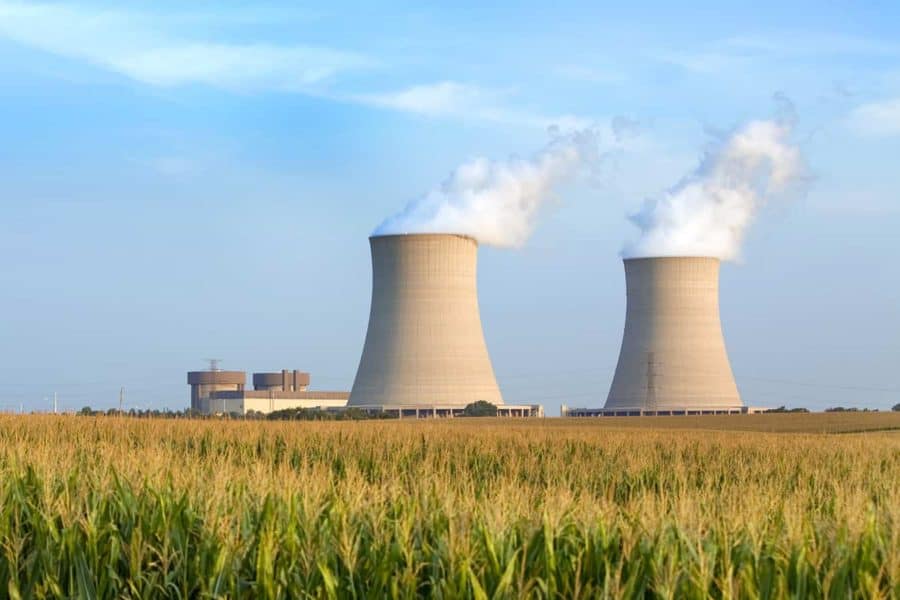A group of leading proliferation experts has sounded the alarm on the potential nuclear weapons risks posed by high assay low-enriched uranium (HALEU), a fuel being produced with federal subsidies to power the next generation of small nuclear reactors. Their analysis, published in the journal Science, challenges the widely held assumption that HALEU is safe from a proliferation standpoint and calls for additional security measures to mitigate the threat.
The authors, five of the world’s foremost academic and independent proliferation experts, argue that HALEU enriched to between 10% and 20% uranium-235 can be used directly to make nuclear weapons, contrary to the assurances of the federal government and the nuclear industry. “Were HALEU to become a standard reactor fuel without appropriate restrictions determined by an interagency security review, other countries would be able to obtain, produce, and process weapons-usable HALEU with impunity, eliminating the sharp distinction between peaceful and nonpeaceful nuclear programs,” they write. “Such countries would be only days away from a bomb, giving the international community no warning of forthcoming nuclear proliferation and virtually no opportunity to prevent it.”
The Rise of HALEU-Fueled Reactors
Fuels for today’s commercial reactors typically use uranium enriched to below 5%, which cannot sustain an explosive chain reaction and thus prevents the repurposing of reactor fuel for weapons. However, many of the new reactor designs that engineers are pursuing would use HALEU for technical reasons. Since HALEU is below the 20% enrichment lower bound that defines highly-enriched uranium (HEU), which is known to be directly usable in nuclear weapons, the development of these reactors has not raised significant proliferation concerns until now.
The authors of the Science paper reviewed open-source information to analyze the quantities and enrichment levels of HALEU that the new reactors would use. They concluded that HALEU above about 12% uranium-235 could be used to make practical weapons with yields comparable to the bombs that destroyed Hiroshima and Nagasaki. Many proposed reactors could contain enough HALEU to make a nuclear weapon and thus pose serious security risks, according to the article.
Federal Subsidies Fuel HALEU Production
These risks are increasing because the federal government is actively encouraging HALEU use and funding its production, despite the potential dangers. The U.S. Energy Department is covering half of the cost of deployment of two demonstration nuclear plants that plan to use multi-ton quantities of HALEU fuel, including the “Natrium” fast reactor that TerraPower, a company founded by Bill Gates, plans to build in Kemmerer, Wyoming. Earlier this year, the federal government allocated $2.7 billion to subsidize production of enriched uranium, including HALEU, to fuel these and other reactor projects being considered for various applications.
Many HALEU-fueled reactors would use uranium enriched to just below the 20% limit, which poses the highest risk. The researchers suggest that “a reasonable balance of the risks and benefits would be struck if enrichments for power reactor fuels were restricted to less than 10 to 12% uranium-235,” which would allow many reactor designs to move forward with only modest economic consequences. However, if higher enrichments continue to be used, the authors recommend that the security standards for protecting HALEU from theft be strengthened to the levels that apply for the weapon-usable materials HEU and plutonium.
The paper calls for additional measures to mitigate this risk as the United States and other countries pursue international deployment of HALEU-fueled reactors. “Given the stakes, we recommend that the US Congress direct the DOE’s National Nuclear Security Administration to commission a fresh review of HALEU proliferation and security risks by US weapons laboratory experts.”
As the world grapples with the challenges of meeting growing energy demands while reducing carbon emissions, the allure of advanced nuclear reactors fueled by HALEU is understandable. However, the potential proliferation risks cannot be ignored. The analysis published in Science serves as a wake-up call, urging policymakers and the nuclear industry to confront these risks head-on and implement appropriate safeguards to ensure that the pursuit of clean energy does not inadvertently pave the way for nuclear weapons proliferation.


